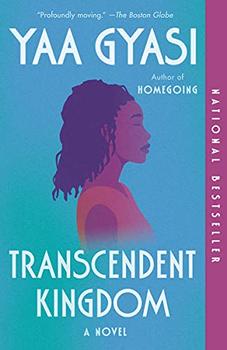Summary | Excerpt | Reading Guide | Reviews | Beyond the Book | Readalikes | Genres & Themes | Author Bio

Mrs. Pasternack, my biology teacher, was a Christian. Everyone I knew in Alabama was, but she said things like "I think we're made out of stardust, and God made the stars." Ridiculous to me then, weirdly comforting now. Then, my whole body felt raw, all of the time, like if you touched me the open wound of my flesh would throb. Now, I'm scabbed over, hardened. Mrs. Pasternack said something else that year that I never forgot. She said, "The truth is we don't know what we don't know. We don't even know the questions we need to ask in order to find out, but when we learn one tiny little thing, a dim light comes on in a dark hallway, and suddenly a new question appears. We spend decades, centuries, millennia, trying to answer that one question so that another dim light will come on. That's science, but that's also everything else, isn't it? Try. Experiment. Ask a ton of questions."
The first experiment I can remember performing was the Naked Egg experiment. It was for my middle school's physical science class, and I remember it, in part, because I'd had to ask my mother to put corn syrup on the grocery list, and she'd grumbled about it endlessly all week long. "Why doesn't your teacher buy you the corn syrup if she wants you to do this nonsense?" she said. I told my teacher that I didn't think my mother would buy the corn syrup, and, with a little wink, my teacher gifted me a bottle from the back of her storage closet. I thought this would please my mother. After all, it's what she had been asking for, but instead it only mortified her. "She'll think we can't afford corn syrup," she said. Those were the hardest years, the beginnings of the just-the-two-of-us years. We couldn't afford corn syrup. My teacher went to our church; she knew about Nana, about my father. She knew my mother worked twelve-hour shifts every day but Sunday.
We started the Naked Egg experiment at the beginning of the week by putting our eggs in vinegar. The vinegar dissolved the shell, slowly, so that by Wednesday's class we had a naked egg, urine-yellow and larger than a regular egg. We put the naked egg into a new glass and poured corn syrup over it. The egg we saw the next day was shriveled, flattened. We put the deflated egg in colored water and watched the blue expand, color pushing through the egg, making it larger and larger and larger.
The experiment was a way to teach us the principles of osmosis, but I was too distracted to appreciate the science behind it. As I watched the egg absorb that blue water, all I could think about was my mother shaking the bottle of corn syrup at me, her face almost purple with rage. "Take it back, take it back, TAKE IT BACK," she said, before flinging herself onto the ground and kicking her legs up and down in a tantrum.
The two of us back then, mother and daughter, we were ourselves an experiment. The question was, and has remained: Are we going to be okay?
Excerpted from Transcendent Kingdom by Yaa Gyasi. Copyright © 2020 by Yaa Gyasi. All rights reserved. No part of this excerpt may be reproduced or reprinted without permission in writing from the publisher.
Your guide toexceptional books
BookBrowse seeks out and recommends the best in contemporary fiction and nonfiction—books that not only engage and entertain but also deepen our understanding of ourselves and the world around us.